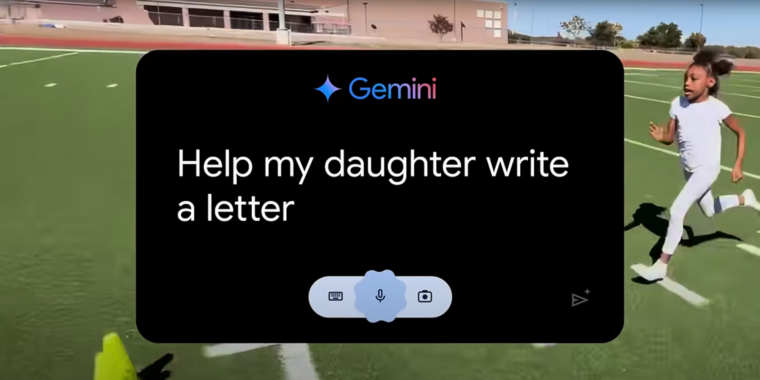If you’ve watched any Olympics coverage this week, you’ve likely been confronted with an ad for Google’s Gemini AI called “Dear Sydney.” In it, a proud father seeks help writing a letter on behalf of his daughter, who is an aspiring runner and superfan of world-record-holding hurdler Sydney McLaughlin-Levrone.
“I’m pretty good with words, but this has to be just right,” the father intones before asking Gemini to “Help my daughter write a letter telling Sydney how inspiring she is…” Gemini dutifully responds with a draft letter in which the LLM tells the runner, on behalf of the daughter, that she wants to be “just like you.”
I think the most offensive thing about the ad is what it implies about the kinds of human tasks Google sees AI replacing. Rather than using LLMs to automate tedious busywork or difficult research questions, “Dear Sydney” presents a world where Gemini can help us offload a heartwarming shared moment of connection with our children.
Inserting Gemini into a child’s heartfelt request for parental help makes it seem like the parent in question is offloading their responsibilities to a computer in the coldest, most sterile way possible. More than that, it comes across as an attempt to avoid an opportunity to bond with a child over a shared interest in a creative way.



Companies like Google don’t understand how advanced AI algorithms work. They can sort of represent things like emotions by encoding relationships between high level concepts and trying to relate things together using logic.
This usually just means they’ll echo the emotions of whomever gave them input and amplify them to make some form of art, though.
People with power at Google are often very hateful people who will say hurtful things to each other, especially about concepts like money or death.